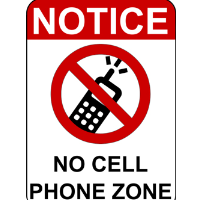New Law Lets Government Shut Down Cell Service, but Only in an “Emergency”

A new law, signed last week by Governor Jerry Brown, will make it harder for state and local agencies to cut off cell phone service to rowdy protesters—like those at the San Francisco subway incident in 2012 that inspired it—but it won’t be ironclad.
Senate Bill 380 requires that court permission must be obtained by the authorities before cell phone service is cut unless there is an “extreme emergency situation” that involves immediate danger of death or great bodily injury. In that case, the authorities must get permission within six hours of having service carriers whack electronic communications, or 24 hours if the six-hour requirement proves inconvenient.
Votes on both the Assembly and Senate floor were unanimous. Brown signed the bill one year after vetoing a similar measure that he said made it too tough to shut down communications in an emergency.
The law was inspired by events in August 2011, when a crowd gathered in a Bay Area Rapid Transit (BART) station to protest the fatal police shooting of a homeless man. BART officials prevailed upon telecommunications companies to cut off cellphone service in the station, which they did for three hours. The shutdown reminded more than a few people of actions taken by now-deposed Egyptian leader Hosni Mubarak earlier in that year.
The American Civil Liberties Union (ACLU) said at the time, the “decision was in effect an effort by a governmental entity to silence its critics. . . . BART's actions must be seen in the context of today’s events. All over the world, people are using mobile devices to protest oppressive regimes, and governments are shutting down cellphone towers and the Internet to silence them.”
The BART board of director’s response to public outcry over the service curtailment was to pass a rule six months later enshrining the agency’s action in official policy. BART officials would be allowed to cut off cell service if there was strong evidence of imminent unlawful activity that threatened public safety, substantial disruption of public transit services or destruction of BART property. No court review was required.
State Senator Alex Padilla introduced SB 1160 in response, which the Legislature passed unanimously before Brown vetoed it.
A year later, Padilla’s reworked bill passed gubernatorial muster. The change from last year’s failed legislation, according to an analysis by Senate staff members, “simplifies the determination law enforcement must make when seeking to interrupt communications in an emergency situation when there is insufficient time to first obtain a court order.” It also leaves untouched laws that allow law enforcement to act in hostage and barricade situations.
The ACLU of Northern California signed off on the new legislation, as did the California Newspaper Publishers Association, the California Cable and Telecommunications Association and the Los Angeles District Attorney’s Office.
The law was opposed by the League of California Cities, the Los Angeles Police Protective League, the Riverside Sheriffs’ Association and others because they felt it hamstrung law enforcement.
–Ken Broder
To Learn More:
New State Law Prohibits Electronic Network Shutdown (by Bob Egelko, San Francisco Chronicle)
Bill Signed by Brown Requires Court Order to Shut Cell Service (by Patrick McGreevy, Los Angeles Times)
Brown Signs Bill Inspired by BART Phone Shutdown (by Josh Richman, Bay Area News Group)
Brown Veto Lets State Agencies Disrupt Protesters’ Cellphone Communications (by Ken Broder, AllGov California)
- Top Stories
- Controversies
- Where is the Money Going?
- California and the Nation
- Appointments and Resignations
- Unusual News
- Latest News
- California Forbids U.S. Immigration Agents from Pretending to be Police
- California Lawmakers Urged to Strip “Self-Dealing” Tax Board of Its Duties
- Big Oil’s Grip on California
- Santa Cruz Police See Homeland Security Betrayal in Use of Gang Roundup as Cover for Immigration Raid
- Oil Companies Face Deadline to Stop Polluting California Groundwater





